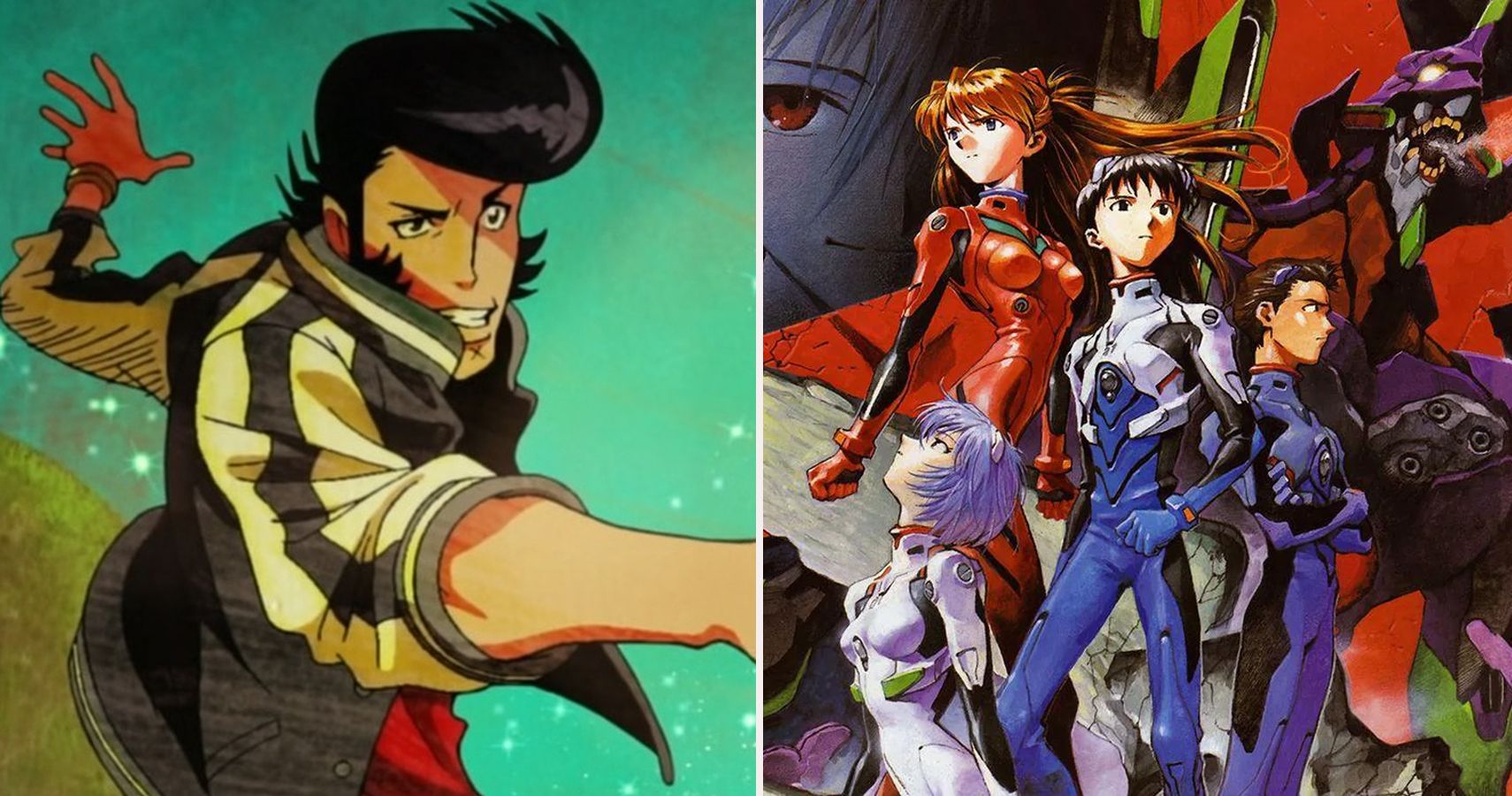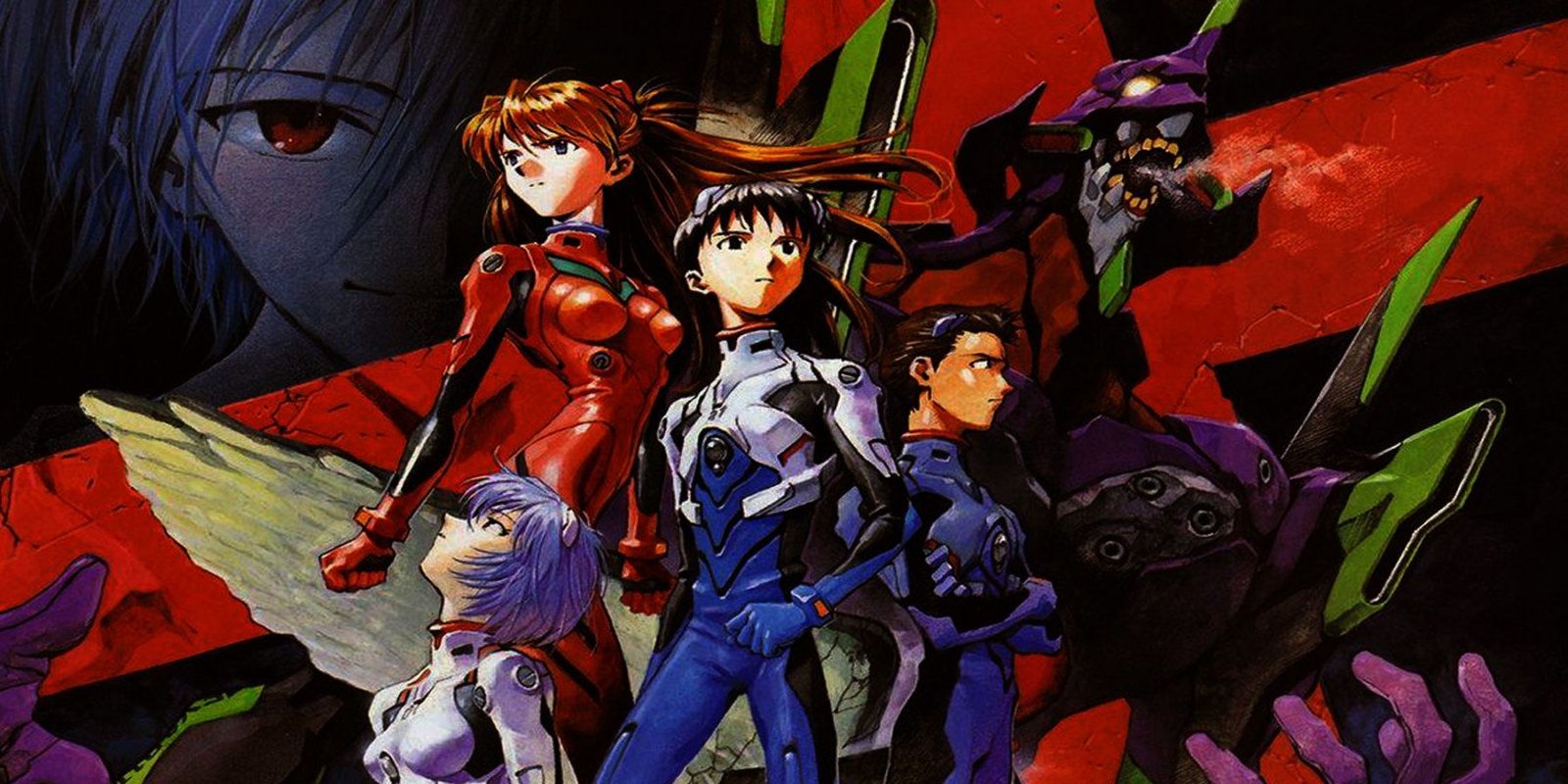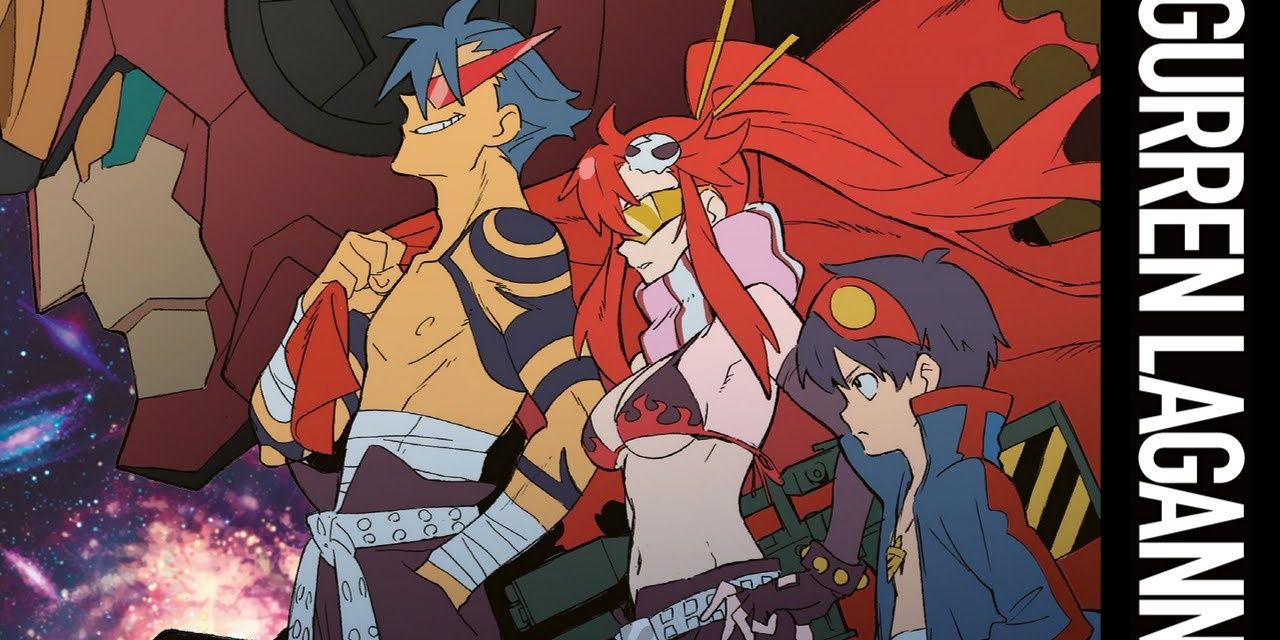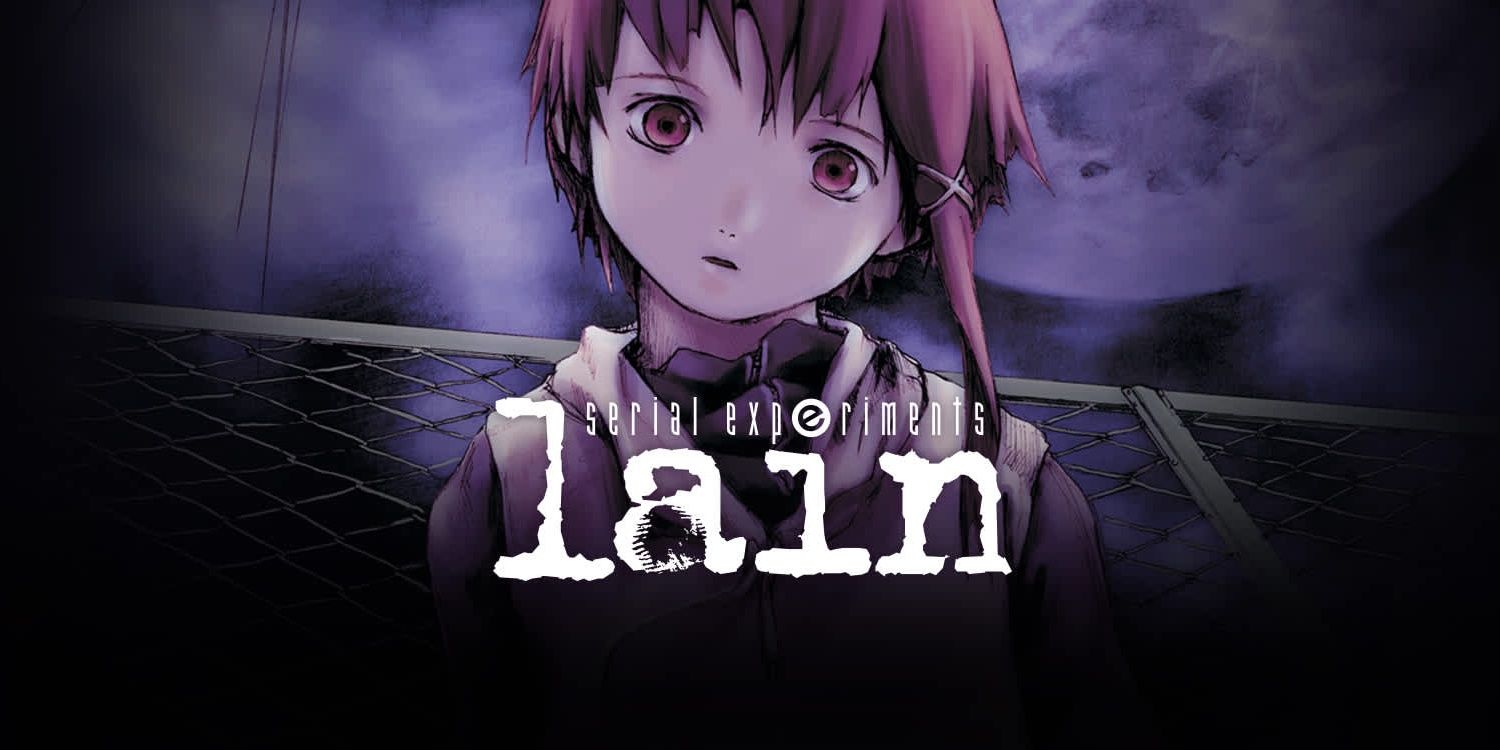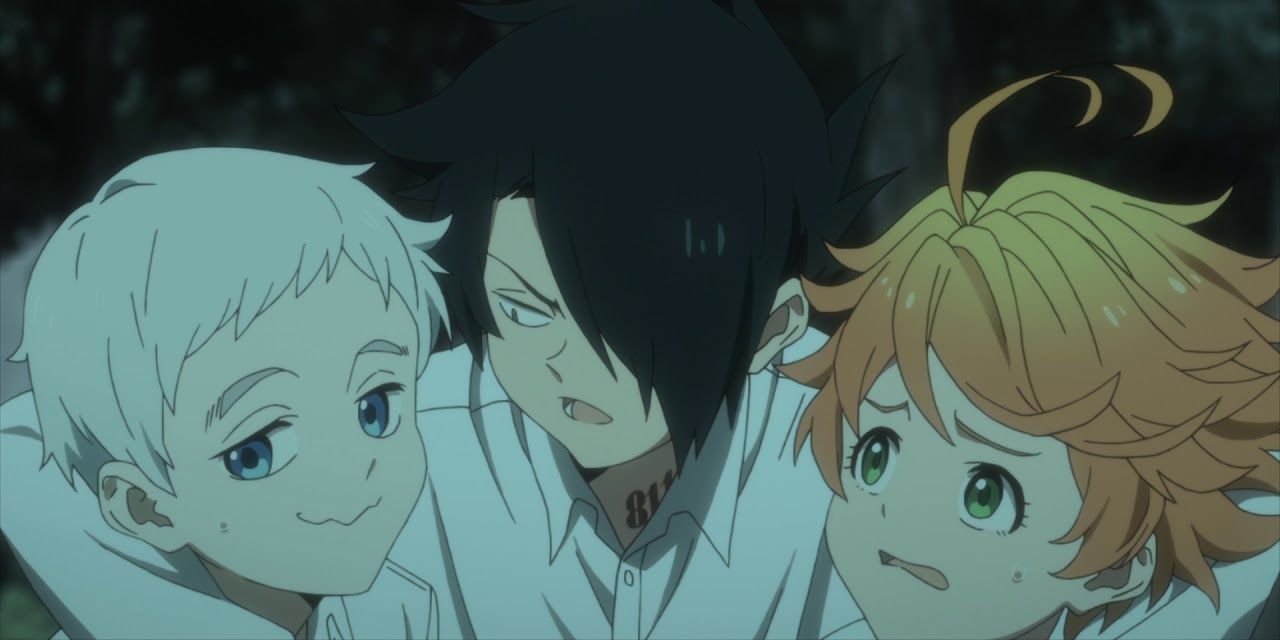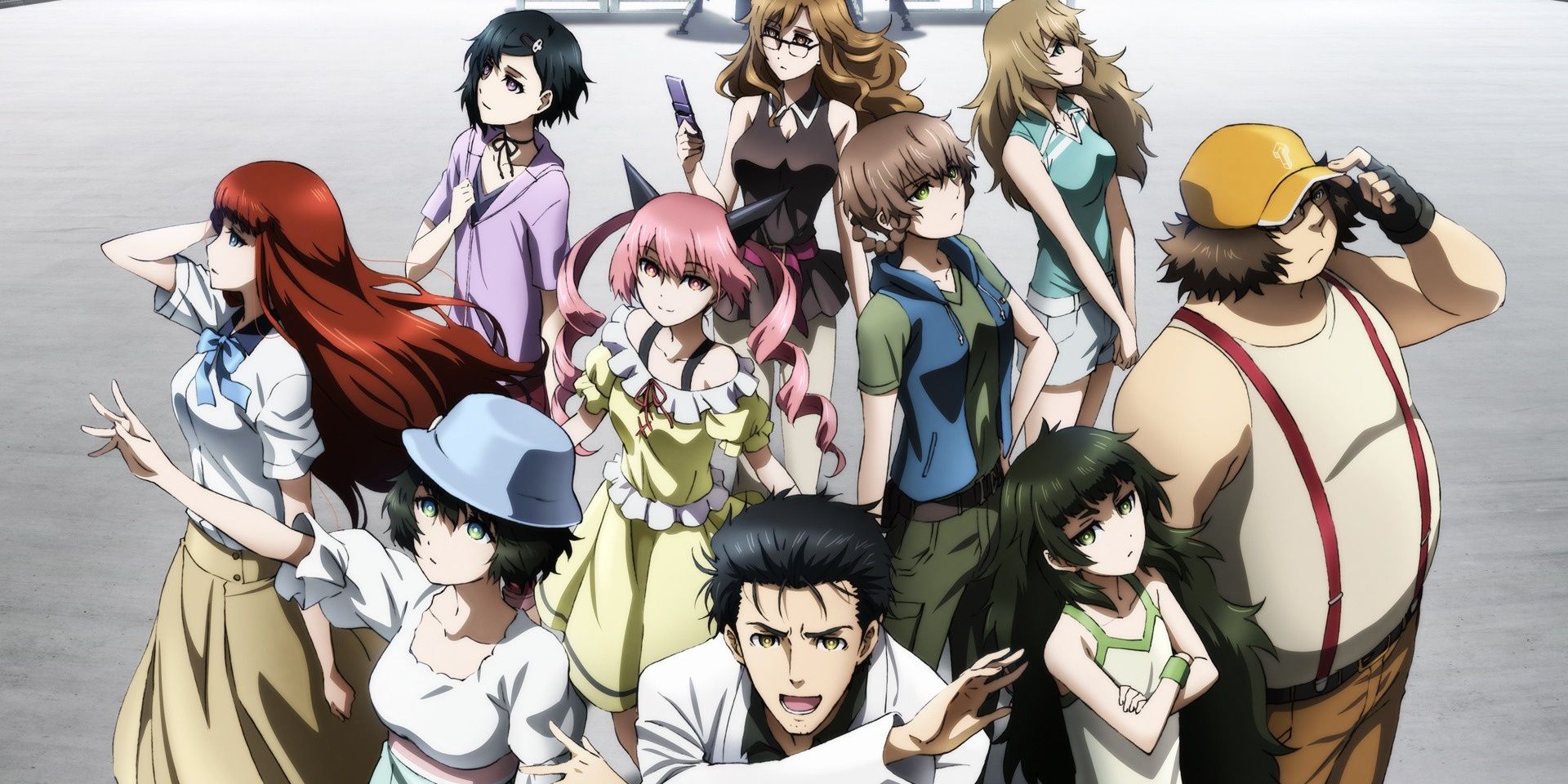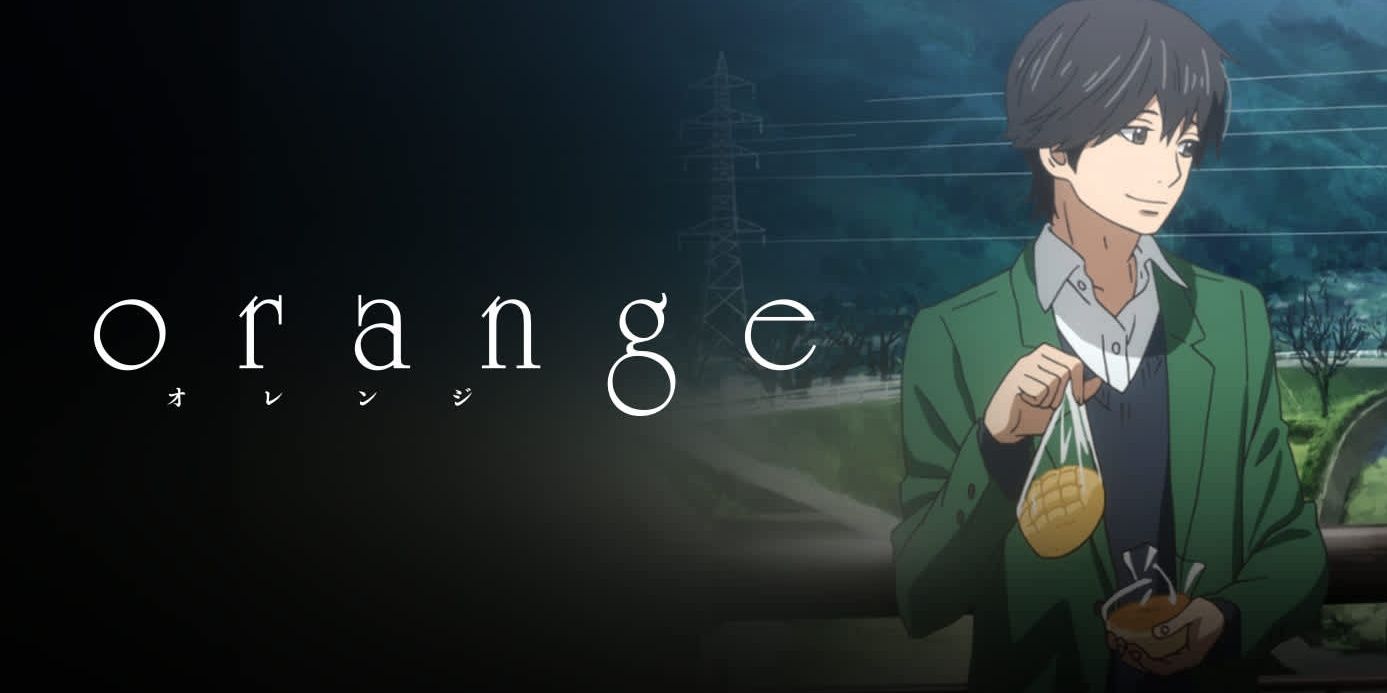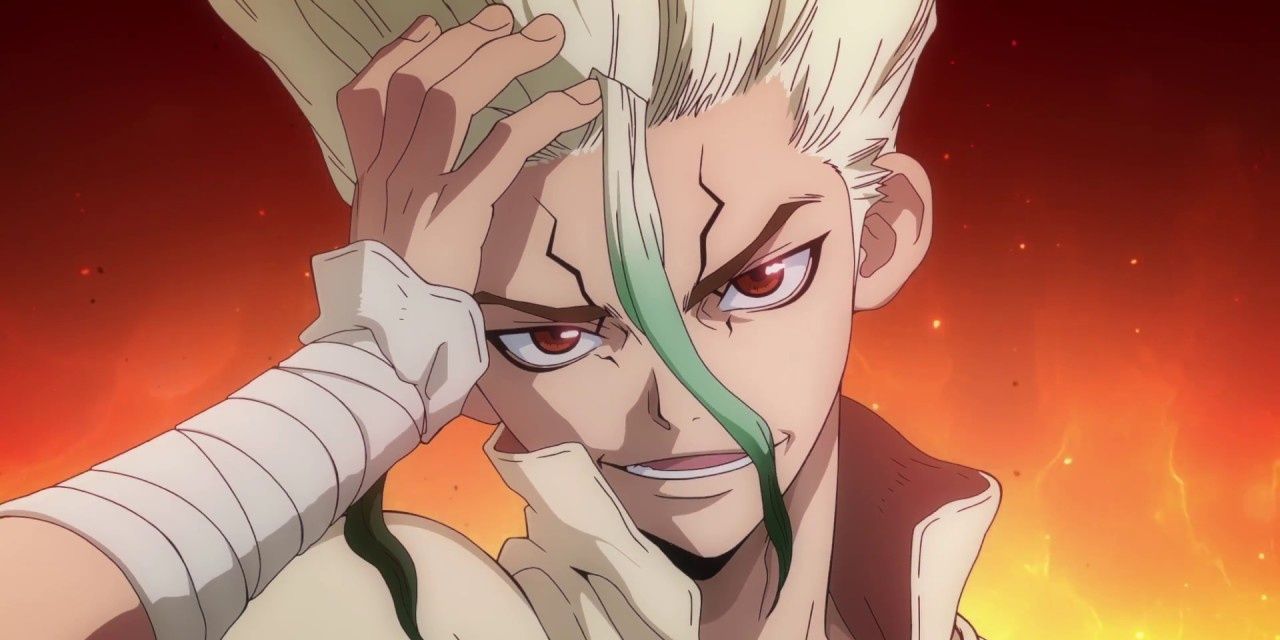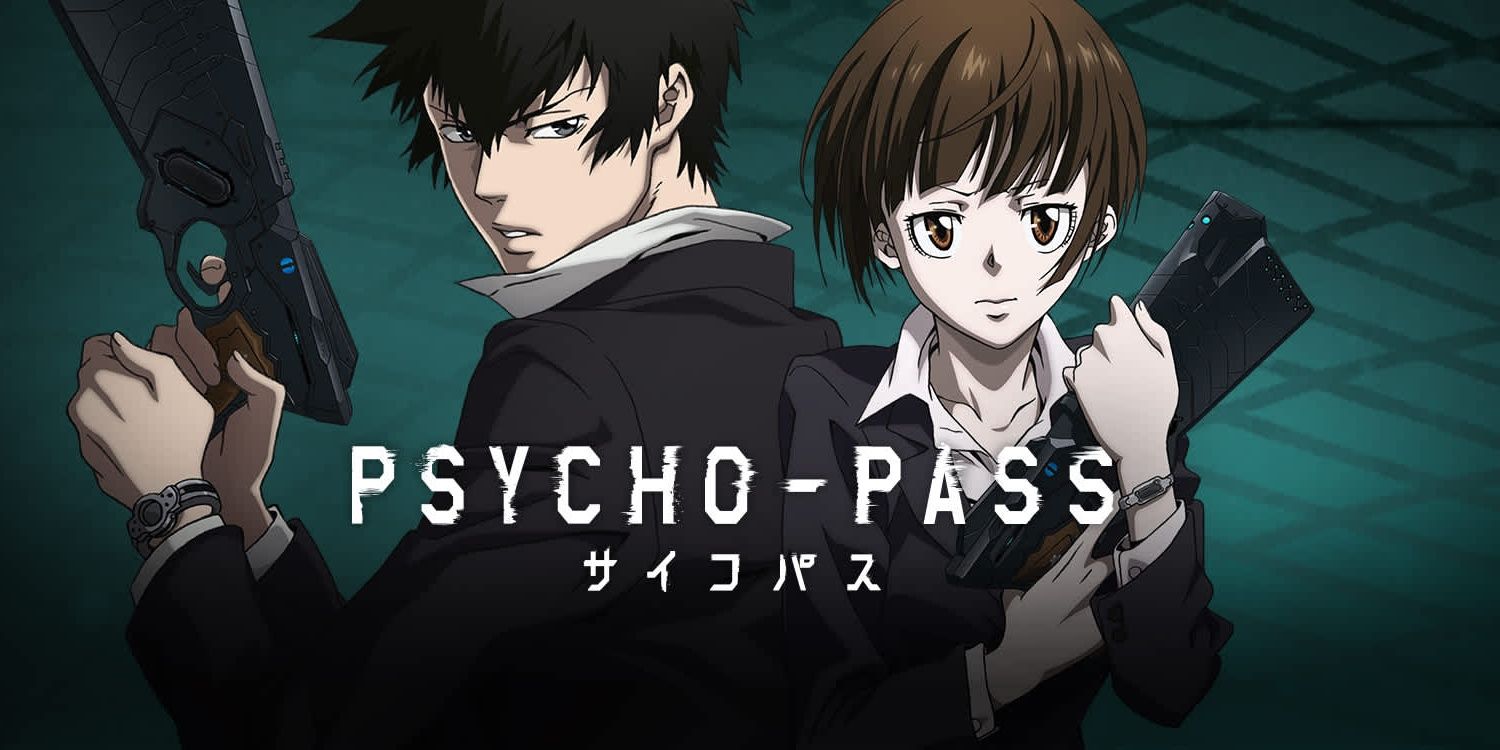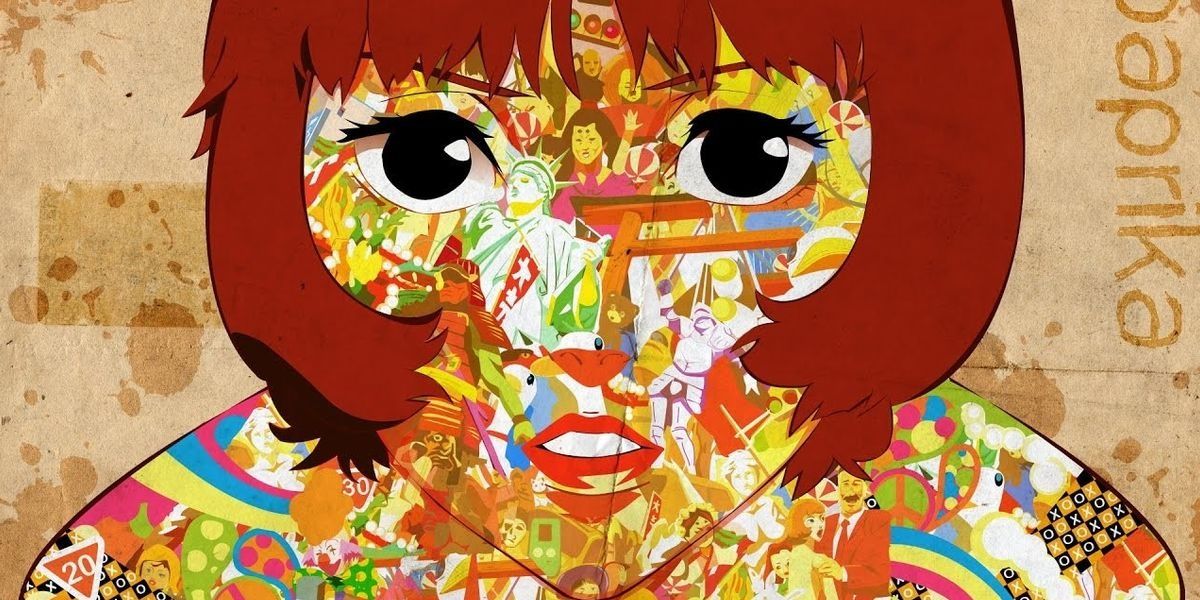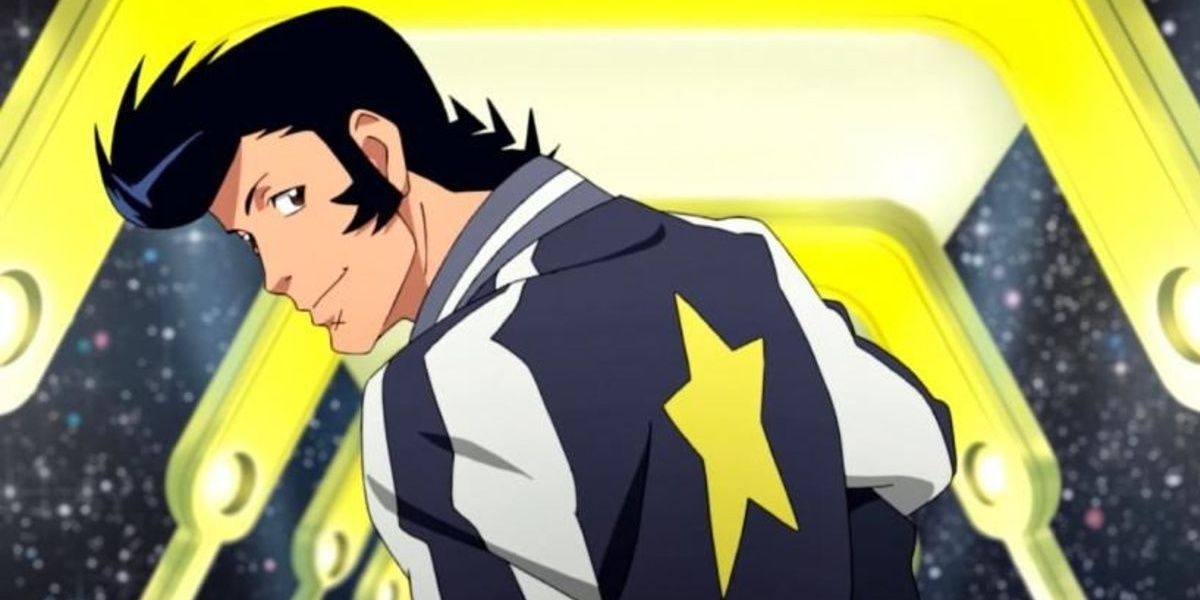Japan is a hot pot for science fiction pop culture, having cultivated and defined some of the genre's greatest aesthetics and sensibilities through its various media. Japanese anime itself is an incredibly influential figure in pop culture throughout the world, not only globalizing Japanese culture but the new and inventive ideas coming out of some of their best artists, writers, and directors. Perhaps best of all, it's Japanese anime that has broken through the zeitgeist the most and had the greatest influence on all of our pop culture sensibilities.
Where would the anime community be today without its giant mechas fighting wars through space, androids having an existential crisis, or the various aliens falling through our bedroom ceilings? If anything, it's sci-fi anime that has filled the ether the most, as various series under this banner have had a hand in defining and redefining the look and feel of the worlds of tomorrow. Or, at the very least, how the world looks at the genre. Let's run down a few of the greatest anime that have truly redefined the sci-fi genre.
10 Neon Genesis Evangelion
To get the obvious out of the way early, Neon Genesis Evangelion is not only regarded as one of the greatest anime series of all time but a defining stop in the evolution of sci-fi/mecha animes. Prior to Eva, Gundam was probably the anime communities main entryway into the mecha genre, essentially defining the tone with big robots, big fights, and space explosions. Evangelion, however, turned the community on its head, as it turned what could've been another sci-fi epic into a deeply human story where characters reflected and examined the consequences of their actions, choices, and places in the world.
If anyone wanted to know why series like Code Geass, Guilty Crown, or Darling in the Franxx became more heavily based on themes and emotion than big fights, then look to the series that encouraged them and so much more anime to be artistically ambitious and high-concept.
9 Gurren Lagann
On the note of giant robot fights, one of the most visually ambitious and effectively written mecha series to date is Tengen Toppa Gurren Lagann. In what could've been a long running series about exploring the expanses of space and fighting various wars, Gainax made a series that encapsulated the feel and ambition of a long-running heroes journey and turned it into the fast paced, shot-of-adrenaline that is Gurren Lagann.
It is a series of incredible excess between its grand fights, eccentric characters, and, of course, stylistic animation. Following the trend of its style, beyond exploring and reaching the end of the universe in its 27 episode run, the series' tone and themes of friendship, bonds, and self-worth are also handled with incredible drama and overwhelming scale, as the friendships get bigger and the feels just keep flowing. Gurren Lagann is a sci-fi anime that just does everything bigger, a la Gundam, but makes the emotions feel deeper, a la Evangelion.
8 Serial Experiments Lain
Serial Experiments Lain, just by its tone and style, is the very epitome of 90's punk and grunge that just festers the paranoia of a controlling establishment. In more ways than one, this series has defined the voice of a modern technological issues being a modern dystopia, as characters literally get sucked into the virtual world, the line between what's real and what's digital becomes blurred, and everything is coated in the influence of technology. Perhaps its most distinct impact on the pop culture world is its direct influence in inspiring The Matrix franchise, which is essentially Serial Experiments Lain if there was more kung fu and explosions.
7 The Promised Neverland
There are plenty of science fiction media that have touched on the dystopian world and its tendency to objectify and abuse children, such as The Hunger Games, The Maze Runner, the Matched series, and pretty much any other YA novel. If things seem too good to be true in a distant future, it probably means that it's too true for the kids; and while The Promised Neverland is no different, it certainly doesn't carry itself in the same way that other dystopias do.
It literally and directly makes its child characters into a "consumable" commodity that are ranched and gated like cattle (showing Attack on Titan a thing or two of what that phrase can really mean). While The Promised Neverland is an epic adventure to dethrone the establishment that currently threatens the kids, it carries itself much more like a Hitchcock movie, as it puts feelings of suspense, fear, and utter horror at the forefront of its revolution, as the obstacles and series villains take on the main characters with slow yet cruelly witted precision. It does all this while contrasting the almost Disney-esque perfection of what's clearly not a humble orphanage.
6 Steins;Gate
In the wake of Primer, there was a deep need within the time travel genre for something darkly toned and filled with suspense and mystery. Luckily for the video game community, 2009 gave them Steins;Gate the video game. And, luckily for the anime community, 2011 adapted that game into a sharply written and tautly paced anime series. Steins;Gate is an anime that takes the time travel concept and gives it an heir of mystery by limiting the character's interaction and control of it and introducing asymmetric consequences.
That is to say, the butterfly effect takes some really weird and surprising turns when all you can send back in time is a text message. Because of this, the characters have no idea how or who really changed things, removing all reliability and familiarity from their focuses. As characters experiment with time travel, they also explore the different paths and histories of the character's affected by it, using time travel as a "What If?" opportunity to explore different perspectives. If you haven't seen this, now's a good time as any.
5 Orange
Continuing this list's look at the time travel premise, we find ourselves at the simple, humble lives of a few high schoolers. Orange is not so much a high-concept adventure with travelling through time but an interesting "What if?" drama that explores a group of friends trying to keep one of them from committing suicide. In this series, Naho Takamiya suddenly finds herself getting letters from her older self that lament on her greatest regret in life, not being able to save her friend Kakeru Naruse as he goes through some of the hardest days of his life.
The idea of consequence in this series doesn't so much look at butterflies creating tsunamis but on the changing relationships and understandings between characters, as Naho tries desperately to fix her future regrets but also struggles with what she might be sacrificing or who she might be hurting if she save Kakeru. It's a wonderful story of regret and friendship that really humanizes and warms the time travel genre.
4 Dr. Stone
To give a shout out to a new anime series that not only seems unique for a science fiction series but also turns the entire shonen genre on its head, Dr. Stone is one of the most promising animes to come out of the Summer 2019 season. It explores two friends as they awaken within a post-apocalyptic world, where a mysterious incident had encased everyone in stone for thousands of years. Between the two of them is a genius that not only wants to rebuild civilization but has also invented a special solution that can free people from their stone cages.
The series however puts who they decide to awaken at the forefront of the choices and consequences of the series, as the characters struggle with awakening everyone or just a select few as well as who to awaken first. While that concept alone lends itself to incredibly unique and exciting situations, the series also has a healthy layer of science and history textbooks, as it uses real world science concepts to push their advancements forward. Here, the greatest weapon between the characters is not their muscles but their minds and resources, as they compete to create a stronger society. It's science fiction that loves science non-fiction.
3 Psycho-Pass
Here's a cyberpunk series that took its high-concept elements and applied it to a detective drama. Psycho-Pass is a sci-fi/crime series, where the government and law enforcement arrest and enforce the law on people with hostile psycho-passes, the world's measurement of an individual's emotional and mental stability that gauges their potential for criminal behavior. The guns used in the series are incredibly lethal but are locked down to only firing on those with dangerous mental states. From here, emotional and mental stability become a commodity within their own right, as one's status and advancement in society can be judged and measured by their psycho-pass.
Those with a clear psycho-pass can walk the streets without care while those with clouded ones live in constant fear of being discriminated against or going through correction. From here, the series sparks questions of what it really means to be evil and dangerous, as the idea of the psycho-pass and what it means to be indiscriminate are put to the test against bad people with clear psycho-passes and good people who become corrupted.
2 Paprika
Being the only movie on this list, one of Satoshi Kon's final works before his passing persists as a redefining anime, not only for its ambitious and inventive animation but also the cool concepts that they personify. Paprika is a world that features a developing dream helmet that allows its users to explore other people's dreams so as to dig through and investigate other people's subconscious, featuring a detective struggling to solve a case and plenty of direct references to the process of film production.
If this sounds familiar, it's probably because this film, like Serial Experiments Lain, is a direct inspiration for another famous American film, Inception. Inception borrows several elements from Paprika, such as the emotional layers of dreams, the dream invading technology, and its famous window breaking scene. If anything, the world may be seeing dreams as the new frontier for science fiction.
1 Space Dandy
This list would be remiss if it didn't mention the wonderful works of Shinichiro Watanabe. And while Cowboy Bebop is a masterclass within anime within its own right, its sister series, Space Dandy, does so much more with the sci-fi concept. Taking the anthological concept like no other (several different anime directors and their art styles had their hands on this), Space Dandy takes its different sci-fi adventures and subtly adds its own shades of philosophy and introspection, tricking its audiences into thinking when they were just laughing.
"The War of the Undies and Vests, Baby" could've just been a surreal, comedic episode about undies and vests but ends on an oddly sincere and somber scene where Space Dandy surfs from an imploding planet and gazes at the stars. "I'm Never Remembering You, Baby" could've just been a cool look at any alien who can rewrite memories, but Dandy once again adds a personal touch of identity and friendship with his special flavor of Dandiness. If a series can switch from being about a booby monster to literally travelling through purgatory, it's a sci-fi series like no other.

